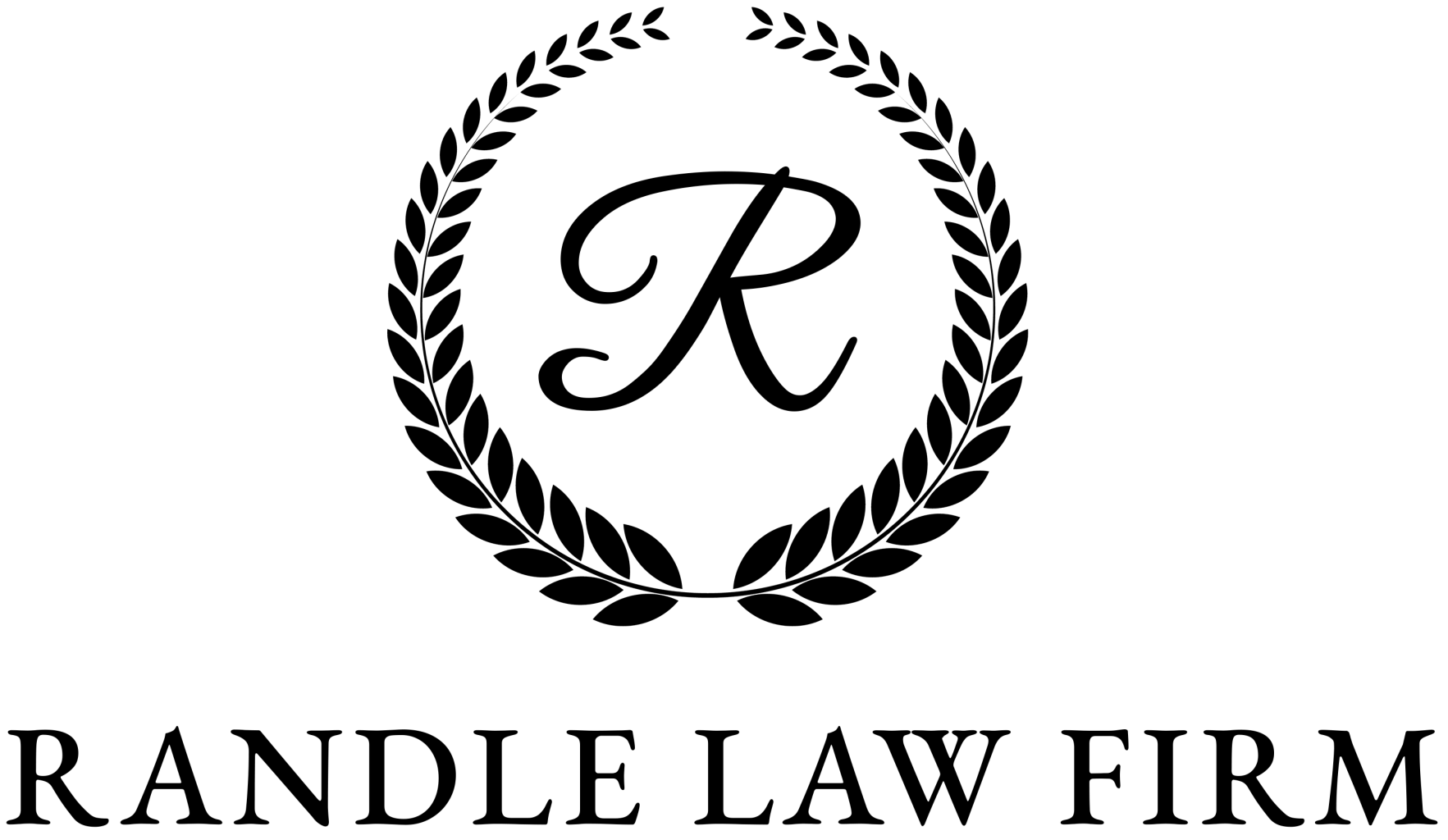Planning for Young Children: Naming Guardians and Setting Up Trusts
April Randle • May 8, 2025
Planning for Young Children: Naming Guardians and Setting Up Trusts
Why Estate Planning Isn’t Just for the Elderly
Many parents assume estate planning is something they can deal with later in life. But if you have young children, the most important planning you’ll ever do might be now. A well-crafted estate plan ensures that if something were to happen to you, your children would be cared for by the people you choose—and that your assets would be managed wisely on their behalf.
Without a plan in place, the state of Tennessee may decide who takes care of your children and how assets are handled for the child’s benefit. That often involves court-appointed guardians and conservators, delays, significant costs, and added emotional stress for the people you love most.
Naming a Guardian: The Most Important Decision You May Ever Make
One of the most powerful things you can do as a parent is to name a legal guardian for your minor children. This is the person you trust to step into your shoes if you’re no longer able to care for your kids. You can name a guardian in your will, and you can even name a backup or co-guardians depending on your situation.
When choosing a guardian, consider values, parenting style, location, and emotional readiness. The decision doesn’t have to be permanent—you can revise it as your children grow and your relationships evolve. What matters is putting your wishes in writing so a court can follow them.
Protecting Their Inheritance with a Trust
Minor children can’t legally inherit money or property directly. If you were to pass away without a trust in place, the court may assign someone to manage the inheritance—often under strict limitations—until your child turns 18, sometimes 21. At that point, they’d receive everything outright, whether they’re ready or not.
A revocable living trust allows you to choose how and when your assets are distributed. For example, you might provide for health, education, and basic needs while the child is young, then allow more access as they reach adulthood. You also get to choose the trustee who will manage the funds according to your instructions.
Give Your Family Clarity and Confidence
Planning for the unexpected isn’t easy, but it’s one of the most loving steps you can take for your children. It ensures they’ll be cared for by the right people, in the right way, with less confusion and stress during a difficult time. We help parents across Tennessee create estate plans that protect their children and reflect their values. Contact our office today to start planning with peace of mind.

What Is Probate? Probate is the legal process through which a deceased person's assets are transferred to their heirs or beneficiaries. In Tennessee, probate also involves validating the will (if there is one), appointing an executor or administrator, paying debts and taxes, and distributing remaining property. It’s a court-supervised process that provides structure and legal authority—but it can also be time-consuming and emotionally draining for grieving families. If a person dies with a will , the probate court oversees the execution of their wishes. If they die without a will (called intestate), Tennessee law dictates how the estate is divided among legal heirs. How Long Does Probate Take in Tennessee? The probate timeline can vary, but most estates in Tennessee take 9 to 14 months to complete, sometimes longer if complications arise. Creditors are given a set period (usually four months) to file claims, and the estate must remain open until those claims are resolved, and all assets have been gathered, sold, and distributed. While small estates can sometimes qualify for simplified procedures, most families will need to go through standard probate—especially when real estate or significant assets are involved. Can Probate Be Avoided? Yes—in many cases, probate can be minimized or even avoided with careful planning. Using tools like revocable living trusts , payable-on-death (POD) accounts , and beneficiary designations , allow individuals to pass assets outside the probate process. That said, some level of probate may still be necessary, especially if there are overlooked assets, disputes, or debts to resolve. Having a comprehensive estate plan in place can help your loved ones avoid unnecessary court involvement and delays. Why This Matters for Your Family Probate can be overwhelming—especially for families dealing with grief. It often involves filing legal forms, gathering documents, notifying beneficiaries and creditors, and appearing in court. Without a plan in place, it’s easy for the process to become costly, delayed, or contested. Many counties require families to hire an attorney to represent the executor. A well-crafted estate plan—especially one that includes a will and/or trust—gives your family clarity and direction. It helps ensure your wishes are honored and makes it easier for your loved ones to navigate legal requirements when the time comes. Whether you're planning ahead or already dealing with a loved one’s estate, we’re here to help. Contact our office today to learn more about the probate process in Tennessee—and how we can guide you through it with clarity and care.

Understanding the Purpose of a Special Needs Trust A Special Needs Trust (SNT) or Supplemental Needs Trust is a legal tool that allows you to leave money or property to a loved one with a disability without jeopardizing their eligibility for government benefits such as Medicaid or Supplemental Security Income (SSI). These programs often have strict income and asset limits, so even a small inheritance could unintentionally disqualify someone from essential support—unless it's handled correctly. A Special Needs Trust solves this problem by placing the assets in a trust, managed by a trustee, rather than giving them directly to the beneficiary. This way, the trust can pay for things that improve the beneficiary’s quality of life—like medical care not covered by insurance, education, transportation, and recreation—without affecting eligibility for needs-based benefits. Who Should Consider Creating One? If you have a child, sibling, or other loved one with a physical or intellectual disability, a Special Needs Trust can help ensure they’re cared for in the future—even if you're not there to do it yourself. This kind of trust is especially important in situations where: The person is receiving (or may one day receive) public benefits You want to provide financial support in a controlled, protected way You’re planning for long-term care or guardianship transitions There are also different types of Special Needs Trusts (like first-party and third-party trusts), and the right choice depends on where the funding comes from and who is setting it up. An experienced estate planning attorney can help you choose the best option based on your family’s unique situation. Peace of Mind for You and Protection for Them Creating a Special Needs Trust is a powerful way to protect a vulnerable loved one’s future while preserving their independence and benefits. It gives you peace of mind knowing they’ll be financially supported without unnecessary complications. If you have a family member with special needs, we can help you create a plan that honors their dignity and safeguards their care. Contact our office today to learn more about Special Needs Trusts in Tennessee and whether one is right for your situation.

What Is the Difference Between an Executor and a Trustee? In estate planning, two of the most important roles you’ll assign are your executor , often called a personal representative, and your trustee . Though they both help carry out your wishes, they serve different purposes. An executor is named in your will and is responsible for managing your estate through the probate process after you pass away. This includes paying debts, filing final tax returns, and distributing assets to your beneficiaries. A trustee , on the other hand, is appointed to manage and distribute the assets held in a trust . If you’ve set up a revocable living trust, your trustee may take over not only after your death but also if you become incapacitated. Trustees may have ongoing duties—especially if your trust includes instructions for staged distributions or long-term asset management. Qualities to Look For Whether you’re naming an executor, a trustee, or both, you want someone who is responsible, organized, and trustworthy . They don’t need to be a legal or financial expert—they can hire professionals to help—but they should be capable of making decisions, keeping records, and communicating clearly with your beneficiaries. Consider someone who is: Detail-oriented and timely Good with financial matters or willing to seek guidance Impartial and level-headed in family dynamics Willing to follow your instructions carefully, even if it’s emotionally difficult It’s also wise to name a backup in case your first choice is unable or unwilling to serve when the time comes. Family Member or Professional? Many people choose a spouse, adult child, or close friend—but this isn’t always the best fit. In complex situations, or if there’s tension among beneficiaries, a neutral third party such as an attorney, CPA, or professional fiduciary may be the better choice. A professional can offer experience, objectivity, and accountability—especially helpful in blended families or high-asset estates. Choosing the right executor or trustee is a critical part of building an estate plan that works. Contact our office today to discuss your options and get guidance on selecting someone you—and your family—can count on.

What Is a Power of Attorney? A Power of Attorney (POA) is a legal document that allows someone you trust to make decisions on your behalf. In Tennessee, there are several types of POAs, but they generally fall into two main categories: financial and health care. These documents are essential tools in any well-rounded estate plan, giving your chosen agent the authority to assist you or act if you become unable to do so yourself. A Financial Power of Attorney allows your agent to manage tasks like paying bills, accessing bank accounts, handling investments, or managing property. A Health Care Power of Attorney—sometimes called a Health Care Proxy or Durable Power of Attorney for Health Care—lets your agent make medical decisions for you if you're unable to speak for yourself. Why Powers of Attorney Matter Without a POA, if something happens to you—such as an illness, injury, or cognitive decline—your loved ones may need to go to court to be granted the legal authority to help you. This can be a time-consuming and stressful process during what is likely already a difficult time. Having POAs in place gives your family peace of mind and ensures that the people you trust are in charge. These documents are also flexible. You can define when the POA takes effect, limit or expand the agent’s authority, and name backup agents in case your first choice is unavailable. An experienced estate planning attorney can help ensure your POAs reflect your wishes clearly and comply with Tennessee law. Protecting Yourself With the Right Documents A Power of Attorney isn't just for seniors—it's for anyone who wants to be prepared for the unexpected. Whether you’re traveling, going through a medical procedure, or just planning for the future, POAs help make sure you're protected and your affairs are in trusted hands. Need help creating a Power of Attorney or reviewing your existing documents? Contact our office today to schedule a consultation and take the next step toward peace of mind.

Understanding the Basics Wills and trusts are both powerful estate planning tools, but they serve different purposes—and understanding the difference can help you choose the right approach for your situation. In Tennessee, a will is a legal document that outlines your wishes for how your assets should be distributed after your death. A trust, on the other hand, is a legal arrangement that can hold and manage assets during your lifetime and beyond. A will only takes effect after death and must go through the probate process, where a court oversees the distribution of your estate. This can take time, and becomes public record. A trust, especially a revocable living trust, takes effect as soon as it's created, and assets held in the trust can often be passed to beneficiaries without going through probate, offering more privacy and efficiency. Which One Do You Need? Many people assume a will is all they need—and for some, that may be true. A will allows you to name an executor, appoint guardians for minor children, and outline who inherits what. However, if you want to avoid probate, plan for incapacity, or control how and when your assets are distributed, a trust may be a better option. Trusts are especially helpful for those with real estate in multiple states, blended families, or loved ones who may need protection from creditors or for managing large sums of money on their own. Trusts also allow you to set conditions—for example, leaving assets to a child in stages or protecting a loved one with special needs. Wills and Trusts Often Work Together It’s not always a matter of choosing one or the other. In fact, many comprehensive estate plans include both. A will can serve as a “backup” document to a trust, handling any assets not transferred into the trust during your lifetime. This is often called a pour-over will. Together, these tools can provide peace of mind and a strong foundation for protecting your family and your legacy. Every family’s situation is different. If you're unsure whether a will, a trust, or both are right for you, contact our office today to schedule a consultation. We’ll help you understand your options and create a plan that fits your goals.

Tennessee’s Intestacy Laws Decide for You Many people put off writing a will, thinking it’s something they’ll get to “someday”. But in Tennessee, dying without a valid will—legally called dying intestate—means that your estate will be distributed according to a strict formula set by state law, not according to your personal wishes. This can lead to unintended consequences and unnecessary stress for your loved ones during an already difficult time. Under Tennessee intestacy laws, your assets will be divided among your closest legal relatives—starting with your spouse and children. If you have no surviving spouse or children, your estate may go to your parents, siblings, or more distant relatives. This process may not reflect your personal relationships or intentions. For example, a long-term partner who isn’t legally married to you, stepchildren, or close friends will receive nothing under state law unless specifically named in a will. No Will Means No Control Without a will, the court also chooses who will manage your estate. That person may not be who you would have selected yourself. You also lose the ability to name a guardian for your children or decide how personal, sentimental, or family heirlooms should be handled. This lack of clarity can lead to family conflict, inability to access financial accounts, and significant costs and legal fees. Creating a Will A properly drafted will gives you control over who inherits your property, who manages your estate, and how your wishes are carried out. It brings peace of mind to you and clear direction to your loved ones. If you’ve been putting it off, consider taking the first step. A will doesn’t have to be complicated—but it does need to be done. Need help creating a will or estate plan in Tennessee? Contact our office today to schedule a consultation and get started.

What Is an Advance Directive? An Advance Directive is a legal document that outlines your wishes for medical care if you become unable to communicate those wishes yourself. In Tennessee, this document plays a crucial role in ensuring that your health care decisions reflect your values, beliefs, and preferences—especially during emergencies or serious illness. Advance Directives, sometimes referred to as a Living Will, state what kind of life-sustaining treatment you do or do not want (such as ventilators, feeding tubes, or resuscitation), and a Health Care Power of Attorney, which names someone you trust to make decisions for you. Together, these tools provide guidance to your doctors and loved ones when clarity matters most. Why Advance Directives Matter in Tennessee Without an Advance Directive, your loved ones may be left to make difficult choices without knowing what you would have wanted. In Tennessee, doctors will typically turn to your next of kin to make decisions, but this may not align with your preferences—and it can lead to conflict among family members. Creating an Advance Directive helps prevent confusion and disagreement. It empowers you to express your values ahead of time and relieves your family from the burden of guessing your wishes. It's also a key part of ensuring that your rights and dignity are respected at every stage of care. When Should You Create One? The best time to create an Advance Directive is before you need it—ideally as part of your overall estate plan. These documents can be updated at any time, so it’s okay if your preferences evolve. Whether you're young and healthy or facing medical challenges, having your wishes clearly documented ensures you're prepared for the unexpected. Ready to create or update your Advance Directive? Contact our office today to schedule a consultation and make sure your voice is heard—even if you can’t speak for yourself.

